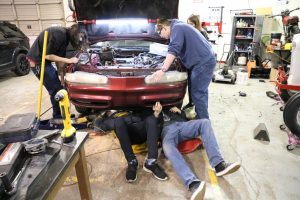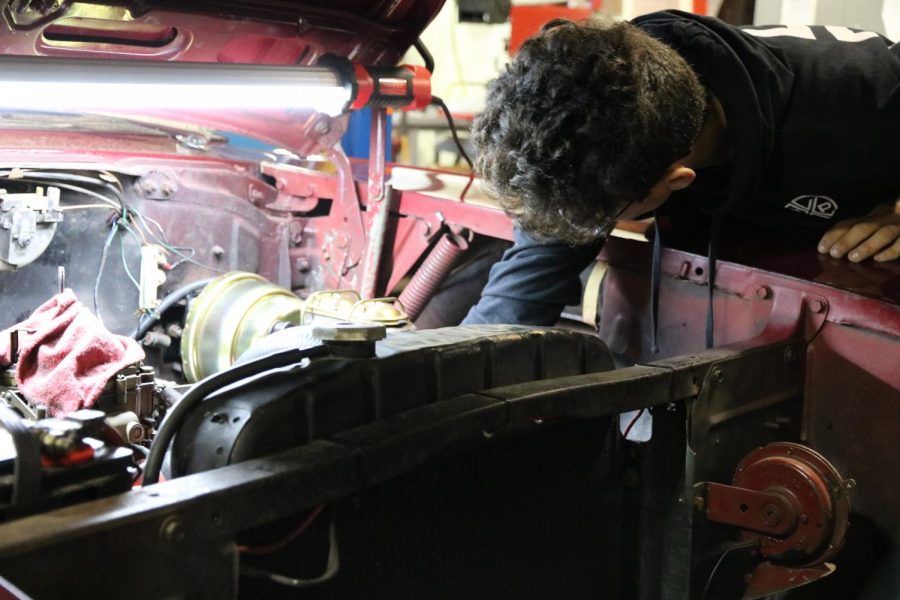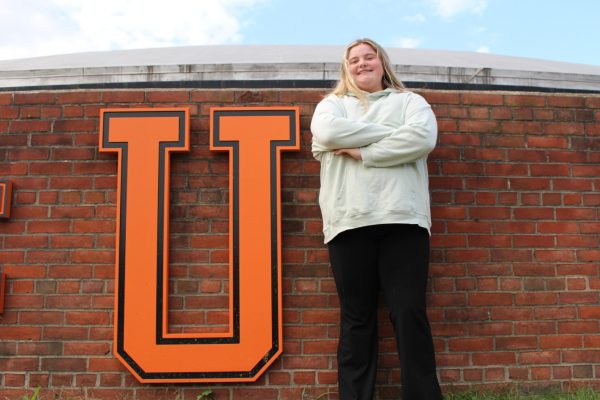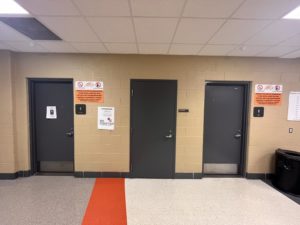Focus on the future of auto trades
Henry Ford II’s CTE Auto uses advanced technology to diagnose problems with cars. Originally published in the Macomb Daily, Oct. 31.
November 14, 2019
The key turns over to start the ignition, but nothing happens. The hood is propped up and students in Henry Ford II’s CTE Auto class gather at the engine to troubleshoot. Junior Kyle Sisco takes the lead by diving into the engine bay to analyze what would fire the car to life.
“It is really satisfying to see something that I put effort into actually work. I really enjoy this class. I definitely want to go into the auto field, but specifically diesel vehicles,” Sisco said. “This class for sure helps me get to where I want to be and gives me the experience that I need.”
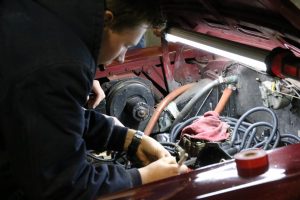
With an unconventional classroom setting, CTE (Career and Technical Education) classes allow students throughout Utica Community Schools to become eligible for a kick-start into a desired field. In addition to Auto, skilled trades ranging from welding to woodworking are also available in UCS.
“This class is special because I can actually teach one-on-one with students. Many students learn better with the ability to be hands-on rather than textbooks, and learning hands-on helps them realize that they have many more skills that they did not even know about,” CTE Auto teacher Brett Orlowski said. “Students can physically see why something’s wrong, tear it apart, and learn how to fix it properly. The best experience is trial and error.”
Students that take CTE classes may also take the course for other reasons than just to learn about what the class is titled. There is much more to the class than just the name.
“I like this class because I want to become an engineer, and I have a passion for cars,” senior Adam Palucki said. “I like tearing the cars apart and fixing them in my own way. I’ve done it outside of school, too, but this class helps me learn the kind of engineering that it takes to make a car run.”
Despite advancements in technology and constant modernization of trades, students have to learn the new methods of repair, as well as the old.
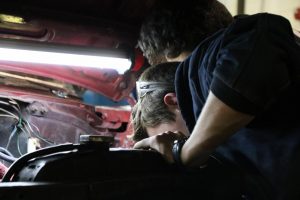
Almost every student interviewed reported that they either wanted to go to trade school for the automotive industry, or go to a college to specialize in something they learned from the CTE Auto class.
“Cars are constantly changing. I have to teach backwards to show how everything was and teach them how everything is now because it’s all computerized,” Orlowski said. “There is a high demand for people who can learn the new and old ways of this industry. Macomb Community College even has scholarships for this field but has a hard time trying to find people to fill them.”
Skilled trade jobs are in high demand and will be increasing for years. High schoolers in these CTE classes are looking to fill the jobs that will be created from retiring workers.
“Ford, General Motors and Chrystler are trying the best they can to find mechanics and technicians to replace their workforce,” Orlowski said. “Most of the workers now have been working as mechanics for 30-40 years and are retiring soon.”
Governor Gretchen Whitmer is also launching a new campaign called “Going PRO” to close the gap between the demand and supply of skilled laborers, thus, trying to get high schoolers interested in skilled labor.
“For a long time we did ourselves a disservice by talking about four-year degrees as the only path to prosperity, unwittingly
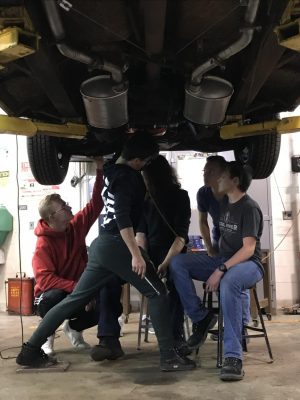
devaluing others,” Whitmer said after a news conference in July. “Now, it’s on us to make sure that we undo the damage that was done through that mentality. It’s important to recognize that there is dignity and prosperity in a variety of lines of work in this state and that there is opportunity for everyone who seeks it out.”
Moving past the stigma against skilled labor jobs, many students still believe that they are just as important as other careers that could be obtained through college degrees.
“I want to go to a trade school rather than a college to continue my studies in the automotive industry,” senior Andrew Holiday said. “ I want to go to Macomb Community College and become certified with all of the experience that I have gained throughout this class.’
From teaching a student what a carburetor is on a 1957 Chevrolet Bel Air, to watching them run a full diagnostic test on a new Dodge Journey, CTE Auto is an example of how Utica Community Schools’ students will fill the trade jobs of the future.
“There is nothing like this kind of learning anywhere else. It helps me prepare for this field well,” senior Adam Sabisch said. “It is one of the many things that makes Ford and this class unique.”
